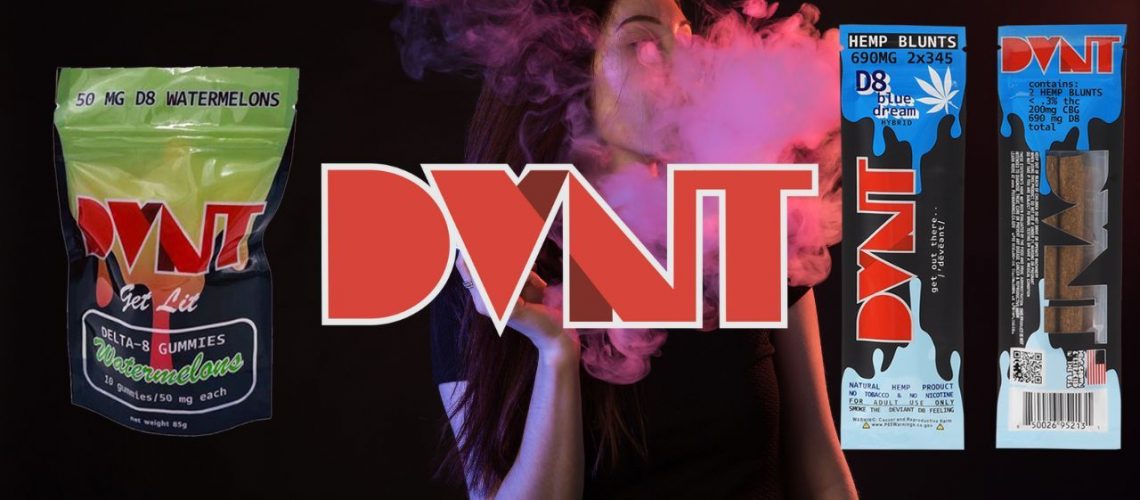Delta 8 and the Endocannabinoid System

Our knowledge about all things hemp and cannabis has come such a long way in recent years. Previously, weed was considered a simple drug that produced a high. Currently, we discuss things like terpenes, the entourage effect, and cannabinoid content when choosing a product. The layman’s understanding of this magical plant has changed, and we understand a whole lot more about the science behind why we feel the way we do when we smoke or eat hemp and cannabis. One of the most fascinating components of the puzzle is the endocannabinoid system. This system within our own bodies is responsible for the relationship we have with hemp and cannabis. Here, I’ll focus on delta 8 and the endocannabinoid system, a.k.a. the science behind how delta 8 works.
In the meantime, if you want to set up your own endocannabinoid system with some delta 8, be sure to check out our convenient online store. Choose from delta 8 prerolls, gummies, and blunts to experience the magic for yourself.
What is the endocannabinoid system?
There’s a few basics we have to cover before we can understand delta 8 and the endocannabinoid system. Let’s start with the word “cannabinoid”. Cannabinoids are present in both plants and animals- plants have phytocannabinoids and animals have endocannabinoids. In terms of molecular structure, the two are very similar. The endocannabinoid system in our bodies is stimulated by our endocannabinoids. According to Harvard Health Publishing, “the ECS comprises a vast network of chemical signals and cellular receptors that are densely packed throughout our brains and bodies”.
We have two types of receptors in our ECS- CB1 and CB2. The CB1 receptors are located in the central nervous system and are responsible for regulating neuronal transmission, inflammation, memory, appetite, and more. CB2 receptors are found in our immune tissues. They play a role in regulating immune function and inflammation.
Interaction with CB2 receptors does not produce a high, and these are often the targeted receptors in medical hemp and cannabis use. When cannabinoids interact with our CB1 receptors, the effect produces a high.
What is delta 8?
Delta 8 is a naturally occurring cannabinoid. Normally, it is only found in trace amounts, so in order to make delta 8 products efficiently, manufacturers use a process called isomerization. This method, patented by late cannabis legend Raphael Mechoulam, allows chemists to convert hemp-derived CBD to delta 8 by rearranging its atoms.
Delta 8 is extremely similar to delta 9 THC on a molecular level. When we talk about regular, traditional THC, we are in fact talking about delta 9. Delta 8 has a double bond on its eighth carbon chain. Delta 9’s double bond is on the ninth carbon chain. While it may seem like a small difference, delta 8 is only considered to be about 50% as potent as delta 9.
Delta 8 and the endocannabinoid system
The reason that delta 8 is less potent than delta 9 can be explained by the endocannabinoid system. According to this scientific review, “the reduced potency of [delta 8] THC in clinical studies compared with [delta 9] THC can be explained by weaker cannabinoid CB1 receptor affinity, although there are other plausible mechanisms that may contribute”. That being said, if you wanted to experience a high more comparable to delta 9, you would simply have to consume more delta 8.
The interaction of delta 8 and the endocannabinoid system is responsible for the more enjoyable, less paranoid high that users experience. The high from delta 8 is often described as “clear-headed”. Other positive effects include relaxation, improved appetite, focus and concentration.
Because delta 8 is less potent, there is a lesser potential for the anxiety and paranoia that people often experience with delta 9. Delta 9 users and novices alike can benefit from delta 8. I personally feel as though I can complete tasks more efficiently with delta 8 than I can with delta 9. The high is truly ideal for a day time smoke that doesn’t totally derail productivity.
Though delta 8 doesn’t bond with the CB1 receptors as much as delta 9, the two have a similar affinity for the CB2 receptors. This means that delta 8 has a huge potential medically. This is especially true, as not all patients prefer the strong high of delta 9. More research is needed, but what we know so far is pretty promising.
Treat your ECS to some delta 8
So there you have it! Everything you need to know about delta 8 and the endocannabinoid system. If you’re done learning and ready to get high, enjoy our convenient online store! Our products are lab tested and made from organic materials you can trust. Don’t believe us? We boast a 98% customer service rating! So shop around and experience delta 8’s interaction with your own endocannabinoid system. Or, more simply put, have fun getting high :).
